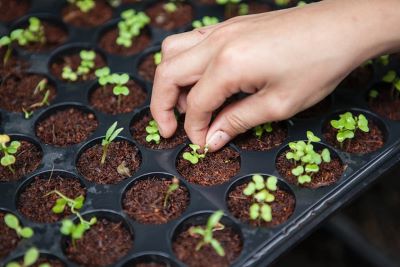Every Day Earth Day
By Nadia Ramoutar MMM Communications Coordinator Ireland 21.04.2022
Isn’t it a pity every day is not considered Earth Day, not just tomorrow?
When issues of climate change are limited to scientific arguments we often miss the bigger picture for our Earth. The impacts are not only physical but have emotional, spiritual, economic and gender contexts. For the MMMs, we are actively working in many environmental issues to help improve the quality of life for some of the world’s most vulnerable people in Brazil and Africa. We see healing in broad strokes and realise that helping have access to clean water, healthy food and ways to overcome hunger are very important. This Spring we have been celebrating “The Seeds of Hope.” Our appeal has been to share our skills and resources with the most vulnerable people to sowing seeds – literally and metaphorically.
Nature has a way of healing us, but sadly human behaviour has brought about many adverse impacts to our Earth. It may seem that climate change is an issue for all in the world and that the impact is felt by everyone in equal measure. But, that is not the case. A recent UN article by Sudanese Environmental Scientist, Balgis Osman-Elasha makes an important distinction that women who represent 70% of the cases of poverty in the world, are hit hardest by the negatives of climate change. We keep in mind that where there are women living in poverty there are often children struggling to grow up. Biodiversity is much more than a trendy buzzword. It is an essential lens for us to view the world and how we can improve the lives for all people, not just some.
MMMs enter communities and work with the local people on the issues that provide them with the greatest challenges. So, we have clean water projects to help in Nigeria and Tanzania. It is hard for many people in the Western World to realise that a lack of access to clean water can have a major impact on the girls in the family often having to walk miles to get water for the family’s survival. This means girls are not educated but also it often puts them in security dangers as they make long journeys and are vulnerable to assault and attack. The rippling effects of no clean water are felt far and wide in many places daily. MMM seek to help rectify this and empower the local people.
It makes so much sense to help people grow their own food. We need to provide the knowledge and tools to make this possible. The growing of local food has many positive implications for the environment. Now, we are actively showing families how to use sack gardens and a variety of initiatives so families can be fed in South Sudan and in Uganda. We love to see how much joy and also huger alleviation this can bring. So much can be done to help families be empowered in growing food for themselves. We want to do more of this and to expand our programs.
We know that there are also many wisdoms going back generations that if we followed would help greatly reduce climate change issues. But we also know technology advancements in sanitation are needed badly in many areas and would help to reduce the spread of disease. We are currently implementing solar panels in many places and hope to receive funding to do more of this in future.
When we know that climate change will greatly hurt the already struggling poor in our world, women and children become more vulnerable. It is so important that we become even more proactive and assertive in educating and showing women how to feed themselves and their children. Without the basic elements of food, hygiene and clean water is hard for people to stay well and grow in health. This year, let’s try to think of every day as Earth Day. If we all just do a little bit we can make a major impact on climate changes. It’s not too late for us to make a difference.
For mor information on the UN Report on Climate and Gender, click here:
https://www.un.org/en/chronicle/article/womenin-shadow-climate-change
SEE ALL BLOG POSTS
